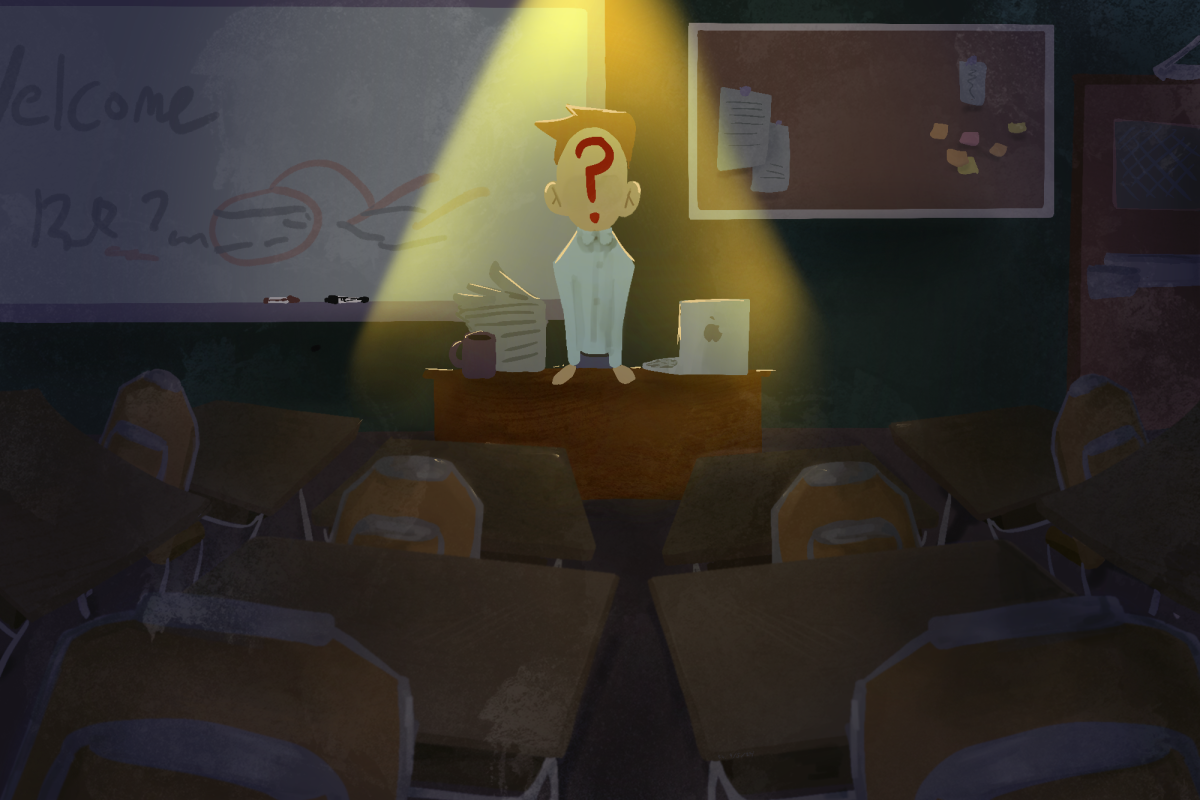Morale is vital to any workplace, including the educational setting. According to Lyra Health, employee morale drives productivity and engagement. When morale is high, teams are engaged, enthusiastic and innovative. The flipside to this is when employee morale is low, teams are often disengaged, unmotivated and apathetic.
The Mt. SAC workplace is no different. To better understand the social dynamic of the educational system, five professors discussed their experience at Mt. SAC to SAC Media – the good, the bad and their general feelings.
Peter Churchill is a full-time English composition and literature professor who has been with Mt. SAC for 18 years and working with the ACCESS program for four years. When asked about his overall experience at Mt. SAC, Churchill shared his passion for helping students in the program. “[It’s] great,” he said. “I love working with the ACCESS students.” Churchill called helping students his “happy place.”
However, his demeanor soured when it came to working under the administration of Mt. SAC’s former president, Bill Scroggins. He shared how he and several of his colleagues felt undervalued by Scroggins and hopes that things will be different with the new president, Martha Garcia.
Churchill also discussed some of the changes he would like to see implemented including how faculty contracts are negotiated. He explained that when pay is adjusted during contract negotiations, the staff gets paid retroactively.
Like any social aspect in life, having a strong and foundational support system is critical.
Churchill said his colleagues and the support system he has here has been beneficial to his experience. “I have a core group of friends with my colleagues,” Churchill said. “The support and discussions that we have are substantial.”
Overall, Churchill’s experience with Mt. SAC was mostly positive, but he admitted it has also had its challenges.
The next professor who asked to remain anonymous, disclosed that they are a full-time humanities and social sciences professor that has been with Mt. SAC for over a decade.
Their overall experience has been overwhelmingly positive and supportive. However, they take issue with some changes California has made to community college courses.
“So there was a law passed by the California State Legislature called Assembling Bill 705 and it eliminated prerequisites for our classes,” the professor said. “I understand why but I now have a third of my students that don’t have the writing skills to pass my course.”
They are thankful for the positive atmosphere Mt. SAC nurtures and appreciates the support system they have in their department. “[It makes you] want to try to contribute to the positive environment.”
David Lane, a full-time philosophy professor who has been tenured at Mt. SAC since 1991, was put off by Mt. SAC at first because it didn’t have the “intellectual caliber” that he thought they should have had.
His feelings have since changed as he now enjoys Mt. SAC a lot more now than he did in the ‘90s. For Lane, the support system by his colleagues directly impacts his happiness. The staff looks out for one another.
“There’s no longer a hierarchy, because you know what? We don’t need teachers anymore,” Lane said. “Being a teacher doesn’t work. Be a coach.”
Adjunct Professor Lisa Guerrero echoed Lane’s sentiment. “I have always enjoyed my time here,” Guerrero said. “People are friendly and they’re always willing to help you out, that’s why I wanted to come back and in essence [I came back] to give back to the school that gave me so much when I was a community college student.”
Guerrero is a former Mt. SAC student who also teaches at Cal State Fullerton. She has been teaching at Mt. SAC since 2006. Guerrero reflected on her time at the college, and said it was an honor for her to give the 2018 Keynote Address for the Mt. SAC Inspirational Women’s Luncheon.
Sociology professor Jean-Pierre Gatillon reflects the happy environment of Mt. SAC was created by his determination to remain a full-time professor there.
Gatillon now has been a full time professor at Mt. SAC for eight years. He remains optimistic and calls Mt. SAC home.
Although these are testimonies from only five professors at Mt. SAC, it seems like the chemistry and comradery between colleagues is the good part of being a professor at Mt. SAC.
While the criticisms of the school seem to have their own standalone points,, it is to better the learning environment for students and benefit the Mt. SAC faculty in the long term.


